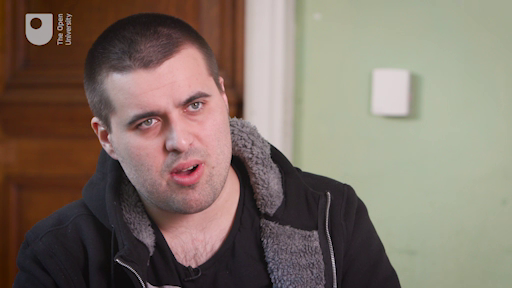2 Making friends
Friendships are good for everyone. As you learned in Session 6, friendships help to reduce loneliness and isolation. Reducing loneliness can improve people’s physical and mental wellbeing, and can even lead to people living longer.
Having friends can also help people with learning disabilities feel more confident and be more independent, so it’s vitally important. But does this reflect what is happening in people’s lives?
Activity 4 Experiences of friendships
Watch this video of Cian, Charlene and Terry talking about their friends. As you watch, note down anything that struck you as interesting or important in the video in the text box below.

Transcript: Video 4
Answer
You may have noted that Cian said he found it hard to make friends at school. He also said that sometimes his autism can make it more difficult for him to know who his ‘real friends’ are. Charlene said she has lots of good friends these days, but it can be hard finding the time to see them. Terry said that she had made good friends at Access all Areas. This includes other actors with learning disabilities, as well as the teachers. She said her friends were like family.
Video 4 shows that people make friends in a range of different contexts. It is not always easy for people with learning disabilities to make and keep friends, however. Practical issues like needing to travel to see your friends can also be a barrier for some.
It is also important that those who provide support to people with learning disabilities recognise the importance of friendships. This isn’t always the case and sometimes support workers don’t focus on what is needed to help people to make and sustain friendships.
